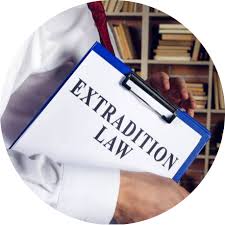
Choosing the Right Lawyer for Money Laundering Defense
In today’s complex financial landscape, charges of money laundering can lead to severe consequences, both legally and financially. If you’re facing allegations related to money laundering, seeking lawyer for money laundering defense legal help with financial crime charges from a qualified attorney is crucial. This article explores the importance of hiring the right lawyer, the criteria to consider, and what to expect during the defense process.
Understanding Money Laundering
Money laundering is the process of concealing the origins of illegally obtained money, typically by means of transfers involving foreign banks or legitimate businesses. It is a serious crime that not only has legal repercussions but can also damage a person’s reputation and professional standing. The methods of money laundering vary, but the primary goal is to make illicit funds appear legitimate.
The Role of a Money Laundering Defense Lawyer
A lawyer specializing in money laundering defense plays a pivotal role in representing individuals or businesses accused of financial crimes. Their primary duties include:
- Understanding the intricacies of money laundering laws.
- Analyzing evidence presented by the prosecution.
- Formulating defense strategies tailored to the specific circumstances of the case.
- Negotiating plea deals or settlements if appropriate.
- Representing clients in court during trials.
Key Factors to Consider When Choosing a Lawyer
Here are several factors to keep in mind when selecting a lawyer for money laundering defense:
1. Experience and Expertise
Look for attorneys who have specific experience in financial crimes, particularly in money laundering. This specialized knowledge can make a significant difference in the outcome of your case.
2. Reputation and Track Record
Research the attorney’s reputation in the legal community. Positive testimonials and a history of successful case outcomes can indicate a qualified and effective lawyer.
3. Communication Skills

Choose a lawyer who communicates clearly and promptly. You want someone who will keep you informed throughout the legal process and who can explain complex legal terms in an understandable manner.
4. Strategy Development
During the initial consultation, ask about the lawyer’s approach to developing a defense strategy. A competent attorney should be able to demonstrate a clear and strategic thought process regarding your case.
5. Fees and Payment Structure
Understand the lawyer’s fee structure and ensure it aligns with your budget. Some attorneys may work on a retainer basis, while others may charge hourly rates. Make sure to clarify all financial arrangements upfront.
The Legal Process
The process of defending against money laundering charges can be complicated. Here’s an overview of the typical stages involved:
1. Investigation
The investigation stage involves the collection of evidence by law enforcement agencies. During this time, your lawyer can begin to prepare your defense by obtaining documents, interviewing witnesses, and assessing the legality of the evidence against you.
2. Charges Filed
If sufficient evidence is found, formal charges will be filed. At this stage, your lawyer will work on crafting a solid defense strategy and potentially negotiating with prosecutors.
3. Pre-Trial and Trial
A money laundering case may involve various pre-trial motions. If the case goes to trial, your lawyer will represent you, presenting evidence and witnesses to support your defense while challenging the prosecution’s arguments.
Conclusion
Facing money laundering charges can be overwhelming, but securing an experienced and knowledgeable lawyer can significantly affect the outcome of your case. Make sure to consider the factors discussed above to choose the right attorney who can defend your rights effectively. The path may be challenging, but with the right legal representation, you can navigate through the complexities of financial crime allegations with confidence.



